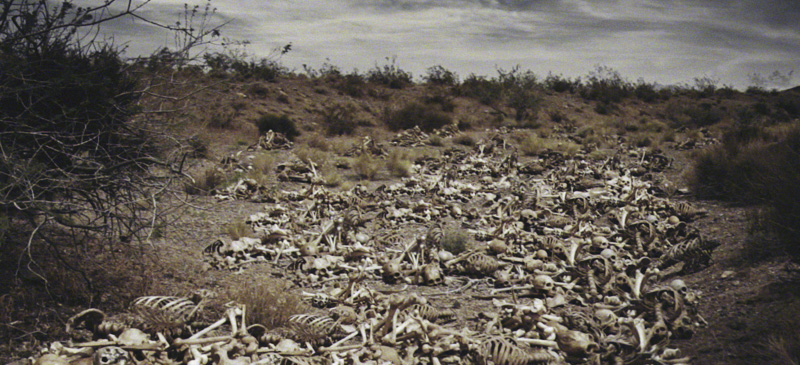Revised Common Lectionary for Pentecost Sunday (Year B): Ezekiel 37:1-14; Psalm 104: 25-35,37; Acts 2:1-21; and John 15:26-27;16:4b-15
 What happened one thousand nine hundred and seventy-nine years ago?
What happened one thousand nine hundred and seventy-nine years ago?
If we can believe the calculations of an early medieval monk named Dennis the Short, one thousand nine hundred and seventy-nine years ago today (or thereabouts) the events described in the reading from the Book of Acts took place. On this day, in about the year 33 A.D. the Christian Church was born; the Holy Spirit came upon the disciples and they went out into the streets of Jerusalem proclaiming the gospel of salvation and baptizing thousands of people.
Happy Birthday, Church! Turn to someone near you and wish them “Happy Birthday!” Now turn to someone else near you and say, “O dry bones, hear the word of the Lord!” Say to them, “Thus says the Lord God: You are dried up! You are spiritually dehydrated!”
That’s not much of a birthday greeting is it? Doesn’t really seem like a very neighborly thing to say, does it?

But that is precisely the task that was given to the prophet Ezekiel. He was shown a series of visions that he was to communicate to the people of God, to his neighbors and fellow Israelites. In one of those visions, which we heard in our Old Testament reading today, he was taken to a valley and shown a pile of bones and told that these were his neighbors to whom he was to say to them, “You are nothing more than dried up on skeletons right now, and worse than that you are not even skeletons . . . you are disconnected bones. You are so spiritually dried up that even your connective tissues, your sinews, your ligaments and tendons have turned to dust.” So he was given the task to prophesy to the wind, that is to the Spirit, to the breath of God and call that breath to enter into the bones and return them to life.
In another vision, Ezekiel was shown a grand plan for a new temple – he goes on at length recording the measurements of the temple and its furnishings, its grounds and all the land surrounding it. He is shown a river flowing from the temple through all of the lands of the world; in places it is ankle-deep; in other places it is waist-deep; in still others it is deep enough to swim it. The river, he is told, is the river of life, “everything will live where the river goes” (Ezek. 47:9). On the banks of the river are trees, “all kinds of trees for food. Their leaves will not wither nor their fruit fail, but they will bear fresh fruit every month, because the water for them flows from the sanctuary. Their fruit will be for food, and their leaves for healing.” (Ezek. 47:12)
Quite a contrast . . . to call the people of God from parched desiccated bones with no life in them to a flood of living water, from spiritual dehydration to abundant life flowing from God’s temple.
Throughout the Old Testament, the prophets make use of water was a sign of God’s purifying Spirit: it was again through Ezekiel that God spoke saying, “I will sprinkle clean water upon you, and you shall be clean from all your uncleannesses, and from all your idols I will cleanse you.” (Ezek. 36:25) Speaking through the prophet Isaiah God promised: “I will pour water on the thirsty land, and streams on the dry ground; I will pour my spirit upon your descendants, and my blessing on your offspring. They shall spring up like a green tamarisk, like willows by flowing streams.” (Isa. 44:3-4). It was Zechariah who predicted that on the day of the Lord “living waters shall flow out from Jerusalem, half of them to the eastern sea and half of them to the western sea; it shall continue in summer as in winter.” (Zech. 14:8). There are so many examples it is not necessary to list them all. The people of First Century Israel knew all this well; their tradition was rich with it. Remember the conversation when Jesus said to Nicodemus: “Very truly, I tell you, no one can enter the kingdom of God without being born of water and Spirit.” (John 3:5). Water was and always is the symbol of God who purifies, who gives birth, who gives life, who heals, and who refreshes.
And so on that day in Jerusalem one thousand nine hundred and seventy-nine years ago, when the people in the streets thought the disciples were drunk, Peter spoke up and said, “No. It is not wine! It is the Spirit of God which, like water, has been poured out upon them so that they prophesy and tell you of Jesus.” And, the Book of Acts tells us, Peter and the others told them the story of Jesus, each in their own languages; Parthians, Medes, Elamites, Mesopotamian, Judeans, Cappadocians, Pontans, Asian, Phrygians, Pamphylians, Egyptians, Libyans, Romans, Cretans, and Arabs all heard the gospel in their own tongues. And the church was born.
Those who heard Peter and the other apostles asked them, “Brothers, what should we do?”
Peter said to them, “Repent, and be baptized every one of you in the name of Jesus Christ so that your sins may be forgiven; and you will receive the gift of the Holy Spirit. For the promise is for you, for your children, and for all who are far away, everyone whom the Lord our God calls to him.” . . . So those who welcomed his message were baptized, and that day about three thousand persons were added. (Acts 2:37-39,40)
That was the task set for the disciples, the same task that was set for Ezekiel – and it is the task set for us. Each and every person in this church today who has been baptized has accepted this same task. Some may have been baptized under the rite of the 1928 Book of Common Prayer in which they (or someone on their behalf) promised to “obediently keep God’s holy will and commandments, and walk in the same all the days of [their] life” and for them the community prayed that they would “not be ashamed to confess the faith of Christ crucified.” Some may have been baptized under the rite of the 1979 prayer book, in which all who participate, both those to be baptized and those who are already members of the church, promise to “proclaim by word and example the Good News of God in Christ.” Some may have been baptized under the rites of other Christian traditions that include similar prayers and promises. In any event, the import is the same: the task set before the baptized is that which was set for Ezekiel, that which was set for the disciples in Jerusalem one thousand nine hundred and seventy-nine years ago today.
But is it possible that we are more like the people in the streets of Jerusalem than like the disciples who went out to them? More like the Israelites of Ezekiel’s time than like Ezekiel himself? Is it possible that it is we who are desiccated, dehydrated, dried-up, and dispirited? Are we in need of God’s life-giving, life-renewing, healing water?
 If so, then receive it. [Each congregant was given a bottle of water when they entered the church.] I want you to give your bottle of water to someone whom you think might need some spiritual refreshment; and I want you to accept a bottle of water from someone who thinks you might need some spiritual refreshment. Let these bottles of water remind you that you are a source of refreshment to others, and that through others God provides you with spiritual renewal.
If so, then receive it. [Each congregant was given a bottle of water when they entered the church.] I want you to give your bottle of water to someone whom you think might need some spiritual refreshment; and I want you to accept a bottle of water from someone who thinks you might need some spiritual refreshment. Let these bottles of water remind you that you are a source of refreshment to others, and that through others God provides you with spiritual renewal.
Take your bottle of water as a reminder of the prophets’ promise to God’s people, of Jesus’ promise to you: “Let anyone who is thirsty come to me, and let the one who believes in me drink.” Jesus also reminded us that as we slake our thirst on the living water he gives us, so we then become sources of living water to others. He went on to say, “As the scripture has said, ‘Out of the believer’s heart shall flow rivers of living water.'” (John 7:37-38) Let this bottle of water be a reminder that you are baptized, that you have received the gift of the Holy Spirit, that you promised to “proclaim by word and example the Good News of God in Christ,” that you are a prophet of the Most High God and a minister of the Gospel, and let your faith be refreshed, restored, and reinvigorated so that you may be a source of spiritual refreshment to others.
No longer are you dried-up bones! No longer are you spiritually dehydrated! No longer is your breath taken away! No longer are you but dust! God has sent forth his Spirit and you are renewed! Sing to the Lord as long as you live; praise your God while you have your being! Declare God’s glory among the peoples!
Happy Birthday, Church! Happy One Thousand Nine Hundred and Seventy-Ninth Birthday!
 Each time I read these words I think they are the wisest thing Paul ever wrote, especially the observation that those who want to be rich are trapped in things that “plunge people into ruin and destruction.” I suspect that Paul meant it is the wanna-be-rich themselves who are so plunged, but all too often it is other people. One need only observe the state of our economy today and the ever-increasing gap between the haves and have-nots to see that. It may be that those eager to be rich “pierce themselves with many pains,” but it is certain that they pierce others with hardship! ~ I spent several years in the “gotta get rich” world practicing law and earning a six-figure annual income. When I finally gave in to God’s nagging and left that life to be ordained and enter parish ministry, my spouse and I discovered that we were more deeply in debt than we had realized because no matter how much I’d earned, we’d spent more, living the life and keeping up appearances. It took several years living very frugally at a much lower income but we finally got out of that financial hole. That was painful, but I think staying in the life I had been living would have been fatal. ~ Further on in today’s reading, Paul encourages the rich “to do good, to be rich in good works, generous, and ready to share” relying on God “who richly provides us with everything for our enjoyment.” (vv. 17-18) This is not a message that is well-received in today’s society; hardly anyone seems to believe in God’s abundance or to be willing to trust in it. I know from personal experience that one can live peacefully and reasonably on a smaller income (and even save for the future), but it’s a difficult lesson to teach others. “The profane chatter and contradictions of what is falsely called knowledge” (v. 20) are so much louder than than the message of moderation, simplicity, and trusting in God. ~ For some reason, the old saying, “Try shouting into a gale and see how that works for you,” comes to mind, together with an image of wind-blown money sailing by.
Each time I read these words I think they are the wisest thing Paul ever wrote, especially the observation that those who want to be rich are trapped in things that “plunge people into ruin and destruction.” I suspect that Paul meant it is the wanna-be-rich themselves who are so plunged, but all too often it is other people. One need only observe the state of our economy today and the ever-increasing gap between the haves and have-nots to see that. It may be that those eager to be rich “pierce themselves with many pains,” but it is certain that they pierce others with hardship! ~ I spent several years in the “gotta get rich” world practicing law and earning a six-figure annual income. When I finally gave in to God’s nagging and left that life to be ordained and enter parish ministry, my spouse and I discovered that we were more deeply in debt than we had realized because no matter how much I’d earned, we’d spent more, living the life and keeping up appearances. It took several years living very frugally at a much lower income but we finally got out of that financial hole. That was painful, but I think staying in the life I had been living would have been fatal. ~ Further on in today’s reading, Paul encourages the rich “to do good, to be rich in good works, generous, and ready to share” relying on God “who richly provides us with everything for our enjoyment.” (vv. 17-18) This is not a message that is well-received in today’s society; hardly anyone seems to believe in God’s abundance or to be willing to trust in it. I know from personal experience that one can live peacefully and reasonably on a smaller income (and even save for the future), but it’s a difficult lesson to teach others. “The profane chatter and contradictions of what is falsely called knowledge” (v. 20) are so much louder than than the message of moderation, simplicity, and trusting in God. ~ For some reason, the old saying, “Try shouting into a gale and see how that works for you,” comes to mind, together with an image of wind-blown money sailing by.  Sometimes I think the Lectionary editors play games with us and today is one of them. They have combined this advice with Paul’s admonition to the young new bishop Timothy: “No longer drink only water, but take a little wine for the sake of your stomach and your frequent ailments.” (1 Timothy 5:23) Don’t drink wine. Drink wine. What’s it to be? ~ Hey! It’s the Bible. For nearly every point made somewhere in Scripture, you can find a counterpoint made somewhere else. It is possible to reconcile these two into a message of moderation, but that is often not the case and, in any case, reconciling or trying to harmonize contradictory passages of Scripture is a poor hermeneutic. ~ The Bible is an historic record and represents, among many other things, the changing understandings of God’s people. There is an arc or trajectory of understanding in scripture. There is development from bashing the heads of our enemies’ infants against the rocks (Psalm 137:9) through leaving the gleanings of the vineyard for the alien, the orphan, and the widow (Deut. 24:21) to loving your neighbor as yourself (Lev. 19:18) and, finally, to “this wine is my blood poured out for many” (Mark 14:24). The development may be inconsistent, there may be backsliding, but as the Rev. Dr. Martin Luther King, Jr., reminded us, “the arc of the moral universe is long but it bends toward justice.” That moral arc is witnessed in Scripture. ~ So have that glass of wine for good health, but “do not be among winebibbers.” (Prov. 23:20)
Sometimes I think the Lectionary editors play games with us and today is one of them. They have combined this advice with Paul’s admonition to the young new bishop Timothy: “No longer drink only water, but take a little wine for the sake of your stomach and your frequent ailments.” (1 Timothy 5:23) Don’t drink wine. Drink wine. What’s it to be? ~ Hey! It’s the Bible. For nearly every point made somewhere in Scripture, you can find a counterpoint made somewhere else. It is possible to reconcile these two into a message of moderation, but that is often not the case and, in any case, reconciling or trying to harmonize contradictory passages of Scripture is a poor hermeneutic. ~ The Bible is an historic record and represents, among many other things, the changing understandings of God’s people. There is an arc or trajectory of understanding in scripture. There is development from bashing the heads of our enemies’ infants against the rocks (Psalm 137:9) through leaving the gleanings of the vineyard for the alien, the orphan, and the widow (Deut. 24:21) to loving your neighbor as yourself (Lev. 19:18) and, finally, to “this wine is my blood poured out for many” (Mark 14:24). The development may be inconsistent, there may be backsliding, but as the Rev. Dr. Martin Luther King, Jr., reminded us, “the arc of the moral universe is long but it bends toward justice.” That moral arc is witnessed in Scripture. ~ So have that glass of wine for good health, but “do not be among winebibbers.” (Prov. 23:20) A few verses later Matthew’s Jesus will interpret this parable, though most biblical scholarship agrees that it is Matthew (or some later editor) doing the interpreting not Jeus, that the interpretation is “nondominical” (as may be the parable itself). According to that interpretation, the enemy is supposed to be the devil, that the wheat that grows from good seed are all the people who’ve heard the gospel and responded appropriately, that the weeds that sprout from the bad seed are all the people who’ve followed the devil instead, and that when it’s all gathered and sorted (the wheat for the barn – Heaven – and the tares for the fire – Hell) it’s the last judgment. Martin Luther taught that the tares are “heretics and false teachers” who are “beautifully green and hypocritical.” But then he also said this parable teaches “that our free will amounts to nothing.” I’m not sure I buy that. ~ It seems to me that the parable in this form is a plea for inclusivity and tolerance. It’s not up to us who’s in and who’s out. The weeds depicted in this parable are probably darnels. Darnels look very much like wheat until harvest time and they cannot be told apart. Furthermore, their roots intertwine with the wheat’s roots so that they cannot be removed without significant damage to the crop. We’ve all seen what happens in a community when some group of “purists” starts trying to determine who gets to stay and who has to go. Better to let all stay and let God sort things out later than to destroy the community. ~ I remember reading some years ago that other rabbis have told a similar parable in which the mixing of wheat and weeds re-occurs over the course of several years. Finally, the owner’s steward decides to find out who the enemy is and stays up at night. When “the enemy” comes to sow the bad seed, the steward is surprised to find that it is the owner himself, sleep-walking in the darkness. This version suggests that we each sow the seeds of our own troubles, that we are each responsible for the good and often for the bad in our lives. The two versions read together underscore the reality that we frequently cannot tell the wheat from the weed, the good from the bad. Best to leave it to God to sort out!
A few verses later Matthew’s Jesus will interpret this parable, though most biblical scholarship agrees that it is Matthew (or some later editor) doing the interpreting not Jeus, that the interpretation is “nondominical” (as may be the parable itself). According to that interpretation, the enemy is supposed to be the devil, that the wheat that grows from good seed are all the people who’ve heard the gospel and responded appropriately, that the weeds that sprout from the bad seed are all the people who’ve followed the devil instead, and that when it’s all gathered and sorted (the wheat for the barn – Heaven – and the tares for the fire – Hell) it’s the last judgment. Martin Luther taught that the tares are “heretics and false teachers” who are “beautifully green and hypocritical.” But then he also said this parable teaches “that our free will amounts to nothing.” I’m not sure I buy that. ~ It seems to me that the parable in this form is a plea for inclusivity and tolerance. It’s not up to us who’s in and who’s out. The weeds depicted in this parable are probably darnels. Darnels look very much like wheat until harvest time and they cannot be told apart. Furthermore, their roots intertwine with the wheat’s roots so that they cannot be removed without significant damage to the crop. We’ve all seen what happens in a community when some group of “purists” starts trying to determine who gets to stay and who has to go. Better to let all stay and let God sort things out later than to destroy the community. ~ I remember reading some years ago that other rabbis have told a similar parable in which the mixing of wheat and weeds re-occurs over the course of several years. Finally, the owner’s steward decides to find out who the enemy is and stays up at night. When “the enemy” comes to sow the bad seed, the steward is surprised to find that it is the owner himself, sleep-walking in the darkness. This version suggests that we each sow the seeds of our own troubles, that we are each responsible for the good and often for the bad in our lives. The two versions read together underscore the reality that we frequently cannot tell the wheat from the weed, the good from the bad. Best to leave it to God to sort out! I am truly amazed at the lengths some people go to deny that Jesus had brothers and sisters. The Greek here is adelphos (pl. adelphoi) and it means “brothers”. It could mean a countryman, a fellow employee, or someone of the same ancestral lineage in some contexts, but do any of those apply here? No! Here, some men show up in the company of Jesus’ mother and with her they are described as “your mother and your brothers”! Could anything be clearer? ~ Those who argue in favor of some alternate meaning (like “cousin”) do so because they want to preserve the supposed “perpetual virginity” of Mary. But if these men are Jesus’ cousins why wouldn’t Matthew have used the word anepsios (which means “cousin”)? The second-century writer Hegesippus, calls James and Jude “brothers of the Lord,” but he uses this word anepsios of Simeon the son of Clopas, the “cousin of the Lord”, so it is possible to distinguish the two relationships and certainly the gospellers could have done so! ~ Others argue that these men were Jesus’ half-brothers, Joseph’s boys by a first marriage. If that’s the case, where is the biblical evidence for that? Where is there even a hint that Joseph was previously married, let alone that he was bringing a bunch of kids along? ~ And as for Mary’s “perpetual virginity”, what does one do with Luke’s description of Jesus as “her firstborn son”? (Luke 2:7) Doesn’t that somehow imply that there was at least a “second born son”, if not a few others? And maybe some daughters? Both Mark and Matthew report that Jesus had sisters. (See Mark 3:32 & 6:3 and Matthew 13:56) If she’d had no other children, wouldn’t Luke have used the word “only” rather than “firstborn”? ~ And as for the virginity thing . . . . Matthew says that Mary became pregnant “before they [i.e., Joseph and Mary] lived together.” (Matthew 1:18) The Greek here is sunerchomai, which specifically refers to conjugal cohabitation! And Matthew continues, saying that Joseph “had no marital relations with her until she had borne a son.” (Matthew 1:25) I mean, really! Can the biblical witness to Mary’s non-virginal status after the birth of Jesus get any clearer? ~ Finally, there’s the cultural argument. For this “perpetual virginity” story to hold water, Joseph would have had to live a life of complete abstinence and chastity! This would not have been a societal norm and certainly wouldn’t be in accord with Jewish marital custom. Under Jewish law, sex is not considered shameful, sinful, or obscene; indeed, there is an halakhic obligation to procreate, and partners are not permitted to withhold sex from one another! Failure to abide by the law is practically unthinkable from the parents of a man who said, “Do not think that I came to abolish the Law or the Prophets ; I did not come to abolish but to fulfill. For truly I say to you, until heaven and earth pass away, not the smallest letter or stroke shall pass from the Law until all is accomplished.” (Matthew 5:17-18) ~ Why is this important? I suppose in many ways it isn’t! But for me . . . . I have this idea that the Christian church oughtn’t to promote ideas that are patently absurd. If the church has to perform all sorts of silly linguistic contortions and rely non-biblical and a-historic pious legends to support its dogmas and doctrines, can we really blame those who shrug their shoulders and walk away? ~ A virgin? Perpetually? C’mon! Get real!
I am truly amazed at the lengths some people go to deny that Jesus had brothers and sisters. The Greek here is adelphos (pl. adelphoi) and it means “brothers”. It could mean a countryman, a fellow employee, or someone of the same ancestral lineage in some contexts, but do any of those apply here? No! Here, some men show up in the company of Jesus’ mother and with her they are described as “your mother and your brothers”! Could anything be clearer? ~ Those who argue in favor of some alternate meaning (like “cousin”) do so because they want to preserve the supposed “perpetual virginity” of Mary. But if these men are Jesus’ cousins why wouldn’t Matthew have used the word anepsios (which means “cousin”)? The second-century writer Hegesippus, calls James and Jude “brothers of the Lord,” but he uses this word anepsios of Simeon the son of Clopas, the “cousin of the Lord”, so it is possible to distinguish the two relationships and certainly the gospellers could have done so! ~ Others argue that these men were Jesus’ half-brothers, Joseph’s boys by a first marriage. If that’s the case, where is the biblical evidence for that? Where is there even a hint that Joseph was previously married, let alone that he was bringing a bunch of kids along? ~ And as for Mary’s “perpetual virginity”, what does one do with Luke’s description of Jesus as “her firstborn son”? (Luke 2:7) Doesn’t that somehow imply that there was at least a “second born son”, if not a few others? And maybe some daughters? Both Mark and Matthew report that Jesus had sisters. (See Mark 3:32 & 6:3 and Matthew 13:56) If she’d had no other children, wouldn’t Luke have used the word “only” rather than “firstborn”? ~ And as for the virginity thing . . . . Matthew says that Mary became pregnant “before they [i.e., Joseph and Mary] lived together.” (Matthew 1:18) The Greek here is sunerchomai, which specifically refers to conjugal cohabitation! And Matthew continues, saying that Joseph “had no marital relations with her until she had borne a son.” (Matthew 1:25) I mean, really! Can the biblical witness to Mary’s non-virginal status after the birth of Jesus get any clearer? ~ Finally, there’s the cultural argument. For this “perpetual virginity” story to hold water, Joseph would have had to live a life of complete abstinence and chastity! This would not have been a societal norm and certainly wouldn’t be in accord with Jewish marital custom. Under Jewish law, sex is not considered shameful, sinful, or obscene; indeed, there is an halakhic obligation to procreate, and partners are not permitted to withhold sex from one another! Failure to abide by the law is practically unthinkable from the parents of a man who said, “Do not think that I came to abolish the Law or the Prophets ; I did not come to abolish but to fulfill. For truly I say to you, until heaven and earth pass away, not the smallest letter or stroke shall pass from the Law until all is accomplished.” (Matthew 5:17-18) ~ Why is this important? I suppose in many ways it isn’t! But for me . . . . I have this idea that the Christian church oughtn’t to promote ideas that are patently absurd. If the church has to perform all sorts of silly linguistic contortions and rely non-biblical and a-historic pious legends to support its dogmas and doctrines, can we really blame those who shrug their shoulders and walk away? ~ A virgin? Perpetually? C’mon! Get real! Everywhere I look these days, no matter the time of year, the world world screams at me to “keep up”, to buy this or that, to go on vacation here or there, to take this cruise or that tour, to drive this luxury car or that SUV. I am told that if I don’t spend hundreds or even thousands of dollars on gifts, if I don’t “go to Jared” or if every kiss doesn’t “begin with Kay” I must not love my spouse. Everywhere one looks, advertisements promote excess. ~ Proverbs tells me there is a better way though. “Better is little with the fear of the Lord . . . Better is a dinner of vegetables where love is.” All the treasures of the world can never take the place of being in right relation to God. We all know people who are careening through life looking for great treasure, trying to fulfill the advertisers vision of the perfect consumer life, trying to keep up with culture, trying to respond to the media. How many of those people are truly happy? ~ We all may know (or know of) others who simply cannot do that, who are deprived by environment or circumstance of the simplest necessities, for whom the luxurious excesses promoted by our advertising are unimaginable. When the Lord simply says, “Better is little than all of that . . . .” it is a statement not merely of moderation, but of justice. Clearly, it is healthier to eat more vegetables than meat, but the import of these proverbs goes beyond personal well being. When we eschew excess, we leave more available to others, we become able to provide for the needs of those deprived of necessaries, and that allows us to move closer to God. If we do not do so, what does that say about us? ~ Remember the words of St. John: “Those who say, ‘I love God,’ and hate their brothers or sisters, are liars; for those who do not love a brother or sister whom they have seen, cannot love God whom they have not seen.” (1 John 4:20) Remember also the words of St. James: “If a brother or sister is naked and lacks daily food, and one of you says to them, ‘Go in peace; keep warm and eat your fill,’ and yet you do not supply their bodily needs, what is the good of that?” (James 2:15-16) “Better is a dinner with vegetables . . . . “
Everywhere I look these days, no matter the time of year, the world world screams at me to “keep up”, to buy this or that, to go on vacation here or there, to take this cruise or that tour, to drive this luxury car or that SUV. I am told that if I don’t spend hundreds or even thousands of dollars on gifts, if I don’t “go to Jared” or if every kiss doesn’t “begin with Kay” I must not love my spouse. Everywhere one looks, advertisements promote excess. ~ Proverbs tells me there is a better way though. “Better is little with the fear of the Lord . . . Better is a dinner of vegetables where love is.” All the treasures of the world can never take the place of being in right relation to God. We all know people who are careening through life looking for great treasure, trying to fulfill the advertisers vision of the perfect consumer life, trying to keep up with culture, trying to respond to the media. How many of those people are truly happy? ~ We all may know (or know of) others who simply cannot do that, who are deprived by environment or circumstance of the simplest necessities, for whom the luxurious excesses promoted by our advertising are unimaginable. When the Lord simply says, “Better is little than all of that . . . .” it is a statement not merely of moderation, but of justice. Clearly, it is healthier to eat more vegetables than meat, but the import of these proverbs goes beyond personal well being. When we eschew excess, we leave more available to others, we become able to provide for the needs of those deprived of necessaries, and that allows us to move closer to God. If we do not do so, what does that say about us? ~ Remember the words of St. John: “Those who say, ‘I love God,’ and hate their brothers or sisters, are liars; for those who do not love a brother or sister whom they have seen, cannot love God whom they have not seen.” (1 John 4:20) Remember also the words of St. James: “If a brother or sister is naked and lacks daily food, and one of you says to them, ‘Go in peace; keep warm and eat your fill,’ and yet you do not supply their bodily needs, what is the good of that?” (James 2:15-16) “Better is a dinner with vegetables . . . . “ You have no idea how many times in 22-plus years of ordained ministry someone has said to me, “What exactly is the unforgivable sin of blasphemy against the Spirit? What is that?” I used to struggle to answer that question because I wasn’t sure myself. I’m not all that sure now, but I think the answer to to simply look at the context in which Jesus says these words. He has just healed a blind and mute demoniac. The Pharisees insist that “It is only by Beelzebul, the rule of demons, that his fellow casts out demons.” (Matt. 12:24) In this context it would appear that blasphemy of the Holy Spirit is saying that Jesus did his miracles by the power of the devil. It was attributing to evil the work of the Holy Spirit. ~ I wonder if doing the opposite might also be considered here – attributing to the Holy Spirit words that she didn’t say, deeds that she didn’t do, and experiences that she didn’t produce, attributing to the Holy Spirit that which is not the work of God. There are plenty of TV preachers these days attributing to God lots of things (especially political positions) that I simply cannot believe are the work or word of God. Are they flirting with blasphemy of the Holy Spirit? ~ Here’s what I think . . . attributing to evil the works of good and, in the opposite vein, calling good that which one knows to be evil, these things destroy relationships and disrupt community for no reason or purpose other than promotion of one’s own agenda. If, as we believe, the church is a community created and constantly renewed by the Holy Spirit commissioned to go into the world to do the work of Jesus, then the blasphemy against the Holy Spirit are words and actions which disorder that community and disrupt that work. ~ There are some who say that the blasphemy of the Holy Spirit can no longer be committed because it is specifically about the actions of Jesus himself; since Jesus is no longer in the world, one can no longer attribute his actions to evil. Others say that anyone who is a believer in Christ cannot commit this sin. I think they’re both wrong. I think people blaspheme the Holy Spirit on a regular basis . . . and a lot of them are (or, at least, claim to be) Christians.
You have no idea how many times in 22-plus years of ordained ministry someone has said to me, “What exactly is the unforgivable sin of blasphemy against the Spirit? What is that?” I used to struggle to answer that question because I wasn’t sure myself. I’m not all that sure now, but I think the answer to to simply look at the context in which Jesus says these words. He has just healed a blind and mute demoniac. The Pharisees insist that “It is only by Beelzebul, the rule of demons, that his fellow casts out demons.” (Matt. 12:24) In this context it would appear that blasphemy of the Holy Spirit is saying that Jesus did his miracles by the power of the devil. It was attributing to evil the work of the Holy Spirit. ~ I wonder if doing the opposite might also be considered here – attributing to the Holy Spirit words that she didn’t say, deeds that she didn’t do, and experiences that she didn’t produce, attributing to the Holy Spirit that which is not the work of God. There are plenty of TV preachers these days attributing to God lots of things (especially political positions) that I simply cannot believe are the work or word of God. Are they flirting with blasphemy of the Holy Spirit? ~ Here’s what I think . . . attributing to evil the works of good and, in the opposite vein, calling good that which one knows to be evil, these things destroy relationships and disrupt community for no reason or purpose other than promotion of one’s own agenda. If, as we believe, the church is a community created and constantly renewed by the Holy Spirit commissioned to go into the world to do the work of Jesus, then the blasphemy against the Holy Spirit are words and actions which disorder that community and disrupt that work. ~ There are some who say that the blasphemy of the Holy Spirit can no longer be committed because it is specifically about the actions of Jesus himself; since Jesus is no longer in the world, one can no longer attribute his actions to evil. Others say that anyone who is a believer in Christ cannot commit this sin. I think they’re both wrong. I think people blaspheme the Holy Spirit on a regular basis . . . and a lot of them are (or, at least, claim to be) Christians. What happened one thousand nine hundred and seventy-nine years ago?
What happened one thousand nine hundred and seventy-nine years ago?
 If so, then receive it. [Each congregant was given a bottle of water when they entered the church.] I want you to give your bottle of water to someone whom you think might need some spiritual refreshment; and I want you to accept a bottle of water from someone who thinks you might need some spiritual refreshment. Let these bottles of water remind you that you are a source of refreshment to others, and that through others God provides you with spiritual renewal.
If so, then receive it. [Each congregant was given a bottle of water when they entered the church.] I want you to give your bottle of water to someone whom you think might need some spiritual refreshment; and I want you to accept a bottle of water from someone who thinks you might need some spiritual refreshment. Let these bottles of water remind you that you are a source of refreshment to others, and that through others God provides you with spiritual renewal. According to Luke, “there was not a needy person among them” because the apostles “distributed to each as any had need.” (Acts 4:34-35) Sounds a bit Bolshevik, doesn’t it? At least it certainly sounds like Karl Marx who, in 1875, wrote, “From each according to his ability, to each according to his needs!” Of course, Marx believed that this sort of social organization could only exist in a society where technology and social organization had substantially eliminated the need for physical labor in the production of things, which cannot in any way, shape, or form describe the situation in First Century Judea. Nonetheless, I’ve never understood how, with Holy Scripture describing and even extolling this social organization of the first disciples, any Christian could not strive toward a society of this sort. ~ Throughout the last two millennia there have been religious orders and utopian experiments which have sought to recreate the first Christian community as separate from, rather than in the midst of, the secular world. It seems to me that we are called to minister within the world order and try to reform it. As Christians we should strive to build a world where there is not a needy person and where all receive as any has need. Jesus put it this way, “Love your neighbor as your self.” (Mark 12:31) We have a word for that sort of love. We call it justice.
According to Luke, “there was not a needy person among them” because the apostles “distributed to each as any had need.” (Acts 4:34-35) Sounds a bit Bolshevik, doesn’t it? At least it certainly sounds like Karl Marx who, in 1875, wrote, “From each according to his ability, to each according to his needs!” Of course, Marx believed that this sort of social organization could only exist in a society where technology and social organization had substantially eliminated the need for physical labor in the production of things, which cannot in any way, shape, or form describe the situation in First Century Judea. Nonetheless, I’ve never understood how, with Holy Scripture describing and even extolling this social organization of the first disciples, any Christian could not strive toward a society of this sort. ~ Throughout the last two millennia there have been religious orders and utopian experiments which have sought to recreate the first Christian community as separate from, rather than in the midst of, the secular world. It seems to me that we are called to minister within the world order and try to reform it. As Christians we should strive to build a world where there is not a needy person and where all receive as any has need. Jesus put it this way, “Love your neighbor as your self.” (Mark 12:31) We have a word for that sort of love. We call it justice. It rained here last night – pretty spectacular electrical storm, to be honest. The dog spent the night cowering under a table. This morning when I took her out at 6 a.m. the world was freshly washed. In the trees surrounding our home, birds of all sorts were singing and there was a sweetness in the air. Sprinkles with clean water, the earth had been cleaned of its uncleannesses, if only for a moment. ~ It is only a coincidental convergence of the two lectionaries (Episcopal Daily Office two-year cycle with the Revised Common Lectionary three-year cycle), but tomorrow’s Old Testament lesson is Ezekiel’s vision of the valley of dry bones in the next chapter of his prophecy. Dry bones, dessicated, dehydrated – emblematic of spiritual emptiness. Clean water, washing, witnessing, revivifying – emblem of the Spirit herself. ~ Tomorrow we will baptize and welcome into God’s household a young lady of about 10 years of age. I find it difficult to conceive of her having “a heart of stone” but I am convinced that in her baptism God will give her a new heart and write on her heart his law of love. Her life will become like the world after the rain, freshly washed and filled with light and sweetness. This is not to say that there will not be dry patches in her life; there are in every life, even the lives of the saints. However, nurtured by the church and sustained by the Spirit, she will be able to make it through those times with more than enough spiritual “moisture”. The Psalms constantly remind us that “the river of God is full of water” (65:9) and that God changes “deserts into pools of water and dry land into water-springs” (107:35). ~ In another vision, Ezekiel saw a river of water flowing from the temple. It flooded the land, in places ankle-deep, in others knee-deep, and in still others waist-deep. The water flowed everywhere and everywhere it flowed was to be the land of God’s people, not just Israel, but all of God’s people. The dry bones of all nations will be restored in the water of God’s river; God will sprinkle clean water upon us all. We call this baptism.
It rained here last night – pretty spectacular electrical storm, to be honest. The dog spent the night cowering under a table. This morning when I took her out at 6 a.m. the world was freshly washed. In the trees surrounding our home, birds of all sorts were singing and there was a sweetness in the air. Sprinkles with clean water, the earth had been cleaned of its uncleannesses, if only for a moment. ~ It is only a coincidental convergence of the two lectionaries (Episcopal Daily Office two-year cycle with the Revised Common Lectionary three-year cycle), but tomorrow’s Old Testament lesson is Ezekiel’s vision of the valley of dry bones in the next chapter of his prophecy. Dry bones, dessicated, dehydrated – emblematic of spiritual emptiness. Clean water, washing, witnessing, revivifying – emblem of the Spirit herself. ~ Tomorrow we will baptize and welcome into God’s household a young lady of about 10 years of age. I find it difficult to conceive of her having “a heart of stone” but I am convinced that in her baptism God will give her a new heart and write on her heart his law of love. Her life will become like the world after the rain, freshly washed and filled with light and sweetness. This is not to say that there will not be dry patches in her life; there are in every life, even the lives of the saints. However, nurtured by the church and sustained by the Spirit, she will be able to make it through those times with more than enough spiritual “moisture”. The Psalms constantly remind us that “the river of God is full of water” (65:9) and that God changes “deserts into pools of water and dry land into water-springs” (107:35). ~ In another vision, Ezekiel saw a river of water flowing from the temple. It flooded the land, in places ankle-deep, in others knee-deep, and in still others waist-deep. The water flowed everywhere and everywhere it flowed was to be the land of God’s people, not just Israel, but all of God’s people. The dry bones of all nations will be restored in the water of God’s river; God will sprinkle clean water upon us all. We call this baptism. These three similes – I am like a vulture in the wilderness; I am like an owl in the ruins; I am like a lonely sparrow – intrigue me. They are metaphors of solitude but worse than solitude, of loneliness, of being completely cut off. ~ The word translated as “vulture” in the NRSV is qa’ath; older translations rendered this as “pelican”. According to the lexicon the word signifies “a ceremonially unclean bird”, but the lexicon admits that the exact meaning of the ancient Hebrew is unknown. The root of the word is qow’ which means “to vomit”. From some bit trivia learned long ago, I recall that vultures defend themselves with intentional projectile vomiting. The simile depicts one so distraught , so distressed, so stricken that she keeps others away, spewing her grief onto those who would comfort her. ~ The Hebrew word translated as “owl” is kowc: owls also are ritually unclean birds. The lexicon tells us that it is “from an unused root meaning to hold together.” This simile perhaps suggests the same thing as the English phrase “barely holding it together”; amidst the waste and devastation of his life, the psalmist is barely holding on, hanging from his last thread, unable to handle one more thing even a small expression of sympathy and support without “losing it altogether.” ~ In the third simile, the psalm uses the word tsippowr, here translated as “sparrow” although more generically it simply means “bird”. This simile holds out hope where the others do not. The same word is used by prophet Ezekiel to paint a picture Jesus will later use as an encouragement to faith: “On the mountain height of Israel I will plant [a cedar], in order that it may produce boughs and bear fruit, and become a noble cedar. Under it every kind of bird will live; in the shade of its branches will nest winged creatures of every kind.” (Ezek. 17:23) Jesus will change the cedar to a mustard tree and promise that even the smallest amount of faith, faith the size of a mustard seed, can accomplish miracles. (Matt. 13:31-32; Matt. 17:20) For the lonely sparrow on the house-top there is the hope of flocking with others in tree planted by the Lord; for the lonely sparrow there is the hope provided by faith. ~ The rest of the morning psalm expresses that hope. The psalmist acknowledges gratefully that God “will look with favor on the prayer of the homeless; he will not despise their plea” and “their offspring shall stand fast in [God’s] sight.” No matter how cast out, unclean, despairing, or distraught, even the vulture and the owl, together with the sparrow, can come and make nests in the branches of the tree planted by God.
These three similes – I am like a vulture in the wilderness; I am like an owl in the ruins; I am like a lonely sparrow – intrigue me. They are metaphors of solitude but worse than solitude, of loneliness, of being completely cut off. ~ The word translated as “vulture” in the NRSV is qa’ath; older translations rendered this as “pelican”. According to the lexicon the word signifies “a ceremonially unclean bird”, but the lexicon admits that the exact meaning of the ancient Hebrew is unknown. The root of the word is qow’ which means “to vomit”. From some bit trivia learned long ago, I recall that vultures defend themselves with intentional projectile vomiting. The simile depicts one so distraught , so distressed, so stricken that she keeps others away, spewing her grief onto those who would comfort her. ~ The Hebrew word translated as “owl” is kowc: owls also are ritually unclean birds. The lexicon tells us that it is “from an unused root meaning to hold together.” This simile perhaps suggests the same thing as the English phrase “barely holding it together”; amidst the waste and devastation of his life, the psalmist is barely holding on, hanging from his last thread, unable to handle one more thing even a small expression of sympathy and support without “losing it altogether.” ~ In the third simile, the psalm uses the word tsippowr, here translated as “sparrow” although more generically it simply means “bird”. This simile holds out hope where the others do not. The same word is used by prophet Ezekiel to paint a picture Jesus will later use as an encouragement to faith: “On the mountain height of Israel I will plant [a cedar], in order that it may produce boughs and bear fruit, and become a noble cedar. Under it every kind of bird will live; in the shade of its branches will nest winged creatures of every kind.” (Ezek. 17:23) Jesus will change the cedar to a mustard tree and promise that even the smallest amount of faith, faith the size of a mustard seed, can accomplish miracles. (Matt. 13:31-32; Matt. 17:20) For the lonely sparrow on the house-top there is the hope of flocking with others in tree planted by the Lord; for the lonely sparrow there is the hope provided by faith. ~ The rest of the morning psalm expresses that hope. The psalmist acknowledges gratefully that God “will look with favor on the prayer of the homeless; he will not despise their plea” and “their offspring shall stand fast in [God’s] sight.” No matter how cast out, unclean, despairing, or distraught, even the vulture and the owl, together with the sparrow, can come and make nests in the branches of the tree planted by God.

